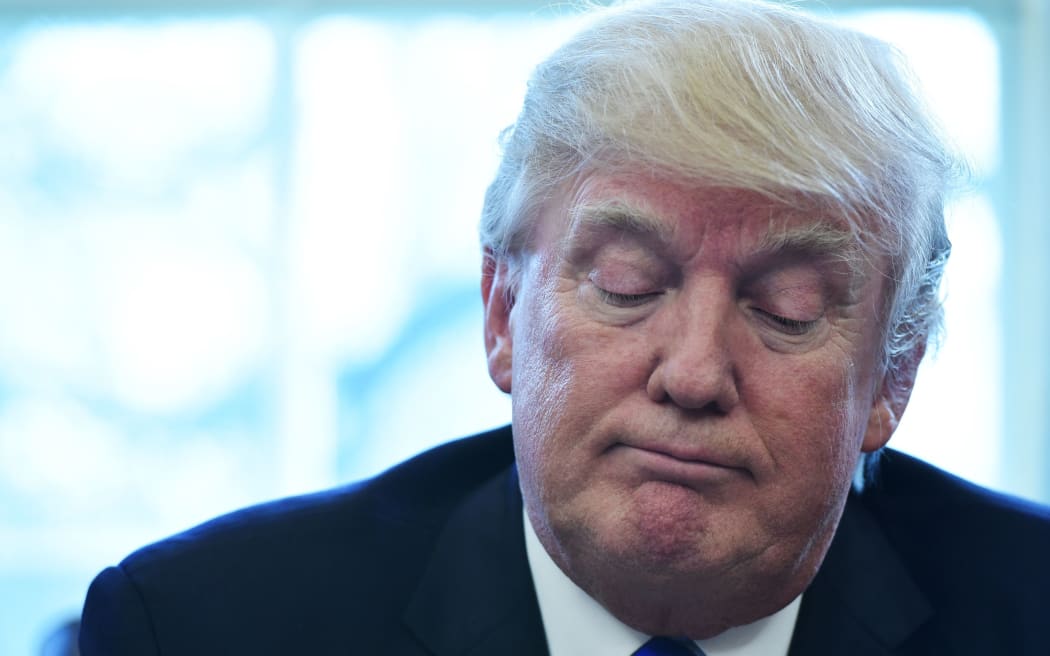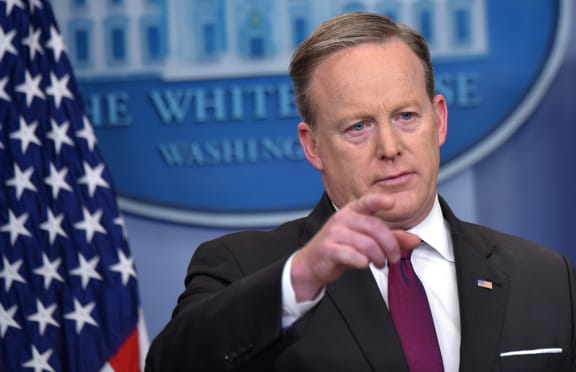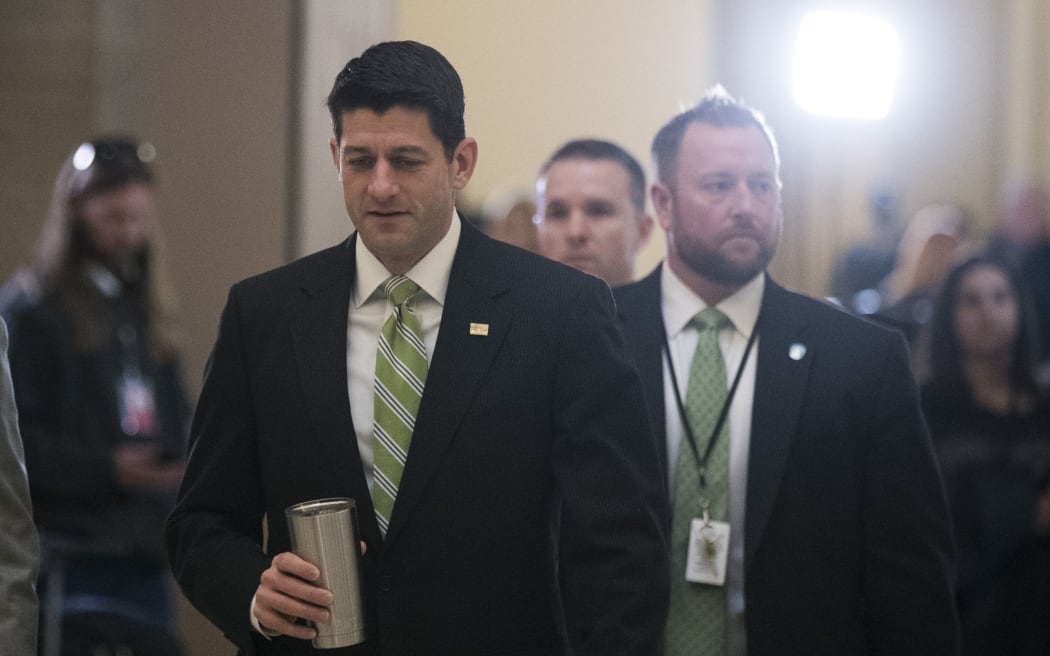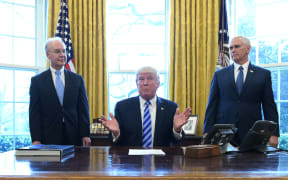Analysis - US President Donald Trump has asked House Speaker Paul Ryan to pull his healthcare bill, which would have overturned the Affordable Care Act, after it became apparent it would not get the minimum number of Republican votes to pass it.

US President Donald Trump in the White House after US Speaker of the House Paul Ryan to withdraw the embattled Republican health care bill. Photo: AFP
But how bad was the defeat? Bad. Very bad.
After a tumultuous week, it's worth stepping back for a bit of perspective.
For the first time in 11 years, Republicans control the presidency and both chambers of the Congress.
There are 44 more Republicans than Democrats in the House of Representatives.
Republicans have been vociferously calling for repeal of President Barack Obama's healthcare reforms for seven years.
The American Health Care Act was the first major piece of legislation pushed by the White House and the Republican-controlled Congress, a key political test early in the president's term, when he should be at the height of his power and party cohesion at its strongest.
In spite of all of this, Trump, Ryan and the Republicans running Washington could not get the job done. The president tried to lay the blame at the feet at the Democratic House minority. Nobody will buy that.
For Republicans today wasn't just bad. It was a disaster. Here are three reasons why.
A busted dealmaker
Trump staked his reputation as a dealmaker - as a "closer" in the words of press secretary Sean Spicer - on getting the healthcare bill through the House of Representatives.
The president sang the bill's praises on Twitter, in press events and at campaign-style rallies.
On Friday, Spicer told reporters the president had gone through "extraordinary feats" to try to get the bill approved.

Sean Spicer Photo: AFP
"Has he pulled out every stop, has he called every member, has he tweaked every tweak, has he done every single thing he can possibly and used every minute of every day that's possible to get this thing through, then the answer is yes," Spicer said.
The reality, whether or not the president tried his absolute best-est, is that the bill went down in flames. Not only that, but all the threats and promises he made in the process were proven to be hollow.
He guaranteed a vote on Thursday (US time) that didn't happen. Then guaranteed a vote on Friday, and that didn't happen either. He warned his party of the dire consequences of a failure to act, and they ignored him.
Just over two months into his presidency, and Trump's poll numbers are sagging, his agenda is on the ropes and his power is greatly diminished.
A powerless speaker

Speaker of the House Paul Ryan walks to his office after bringing the House into session on Friday. Photo: AFP
If it was a bad day for the president, it was a terrible day for House Speaker Ryan, whose inability to control his congressional cohort was exposed for all to see.
As he stood before the cameras explaining the defeat, he looked and sounded like the coach of a team that had just lost a big game it had been favoured to win.
"We came really close," he said, "but we came up short."
The speaker of the House has considerable power to wield over individual members. He sets the rules of debate. He controls choice committee assignments, determines key legislative priorities and can direct party funds to his supporters.
All of that wasn't enough to prevent wholesale desertion on this bill from the left and right flanks of his party.
The conservative House Freedom Caucus may only be 29 members strong, but it proved it could go toe-to-toe with Mr Ryan and prevail, even squeezing a number of major concessions in the last few frenetic days.
Now that they have a taste of victory, they will be an even more potent thorn in Mr Ryan's side in future legislative battles.
An agenda derailed
The New York Times recently reported that the president has been grousing privately that he never should have agreed to take on healthcare reform as his first legislative priority.
Although he mentioned the topic repeatedly on the campaign trail, it always felt like a throw-away line offered to the Republican base - a bit of conservative gospel that party stalwarts expected to be repeated.
Policies like trade, infrastructure spending, tax reform and that "big, beautiful" wall on the US-Mexico border were always nearer and dearer to Trump's heart.
Those agenda items, however, are now at risk, as healthcare reform sinks beneath the waves. Tax cuts, for instance, are made considerably more complicated as long as the tax aspects of Obamacare remain on the books.
Wall Street investors are already expressing their growing pessimism over any serious tax-policy efforts, with stock prices sagging as the prospect of Republican healthcare reform's success dimmed, for instance.
There will still likely be members of Congress who want to keep plugging away on Obamacare repeal, seeing as how they campaigned on it for the past seven years. It will be difficult to agree on where to go next, and not everyone will be keen to listen to a president who botched his first big legislative test.
For seven years Republicans have been promising that they will tear up the Obamacare "root and branch", in the words of Senate Majority Leader Mitch McConnell. Success, they've said, is just an election away.
In 2010, Republicans won control of the House of Representatives. In 2014 they won control of the Senate. In 2016 they won the presidency. At last, Republican grass-roots activists were told, victory was in their grasp.
Only victory, at least for now, has slipped through conservative fingers once again.
-BBC



